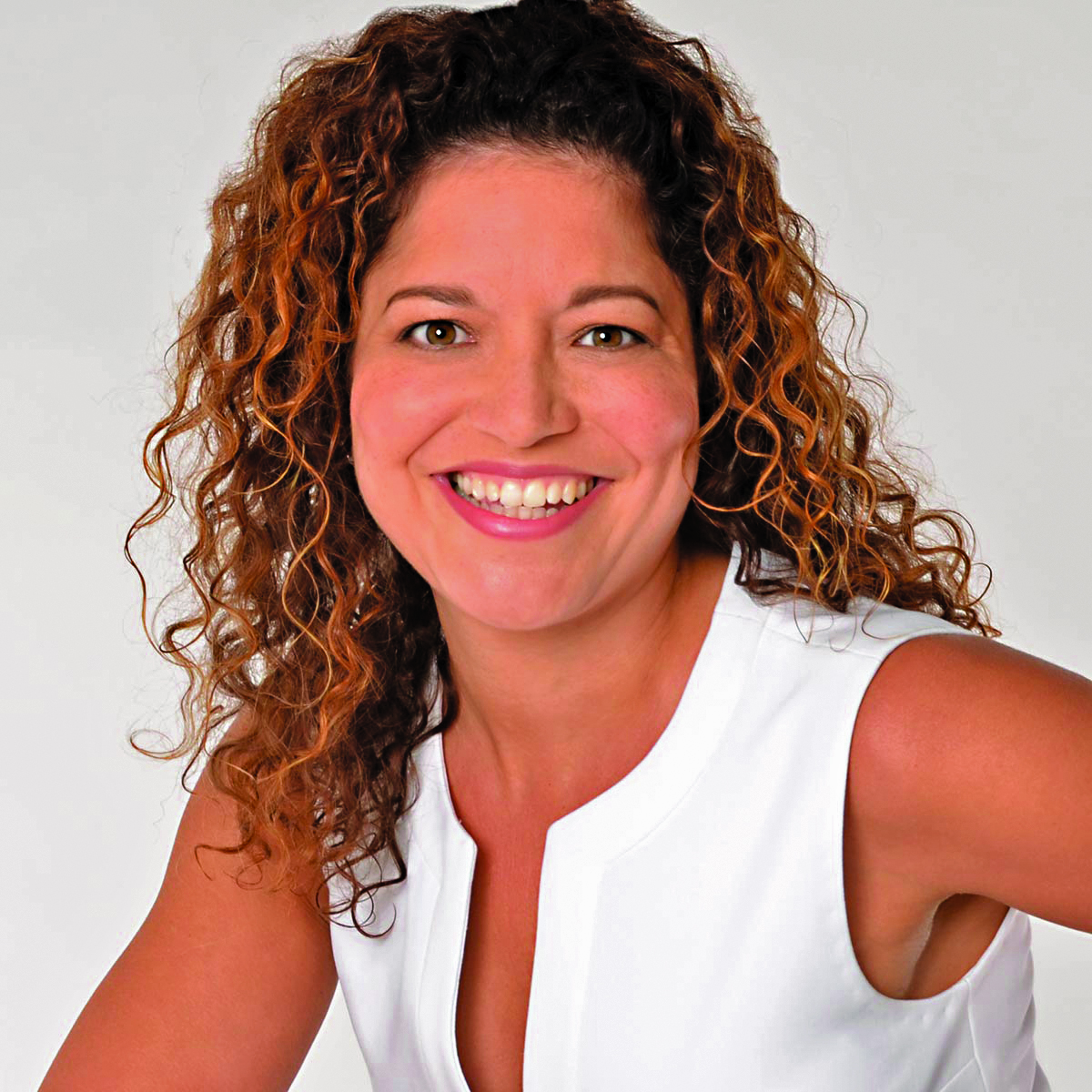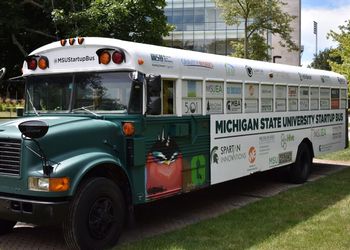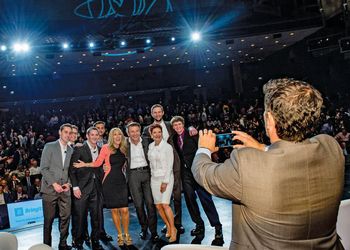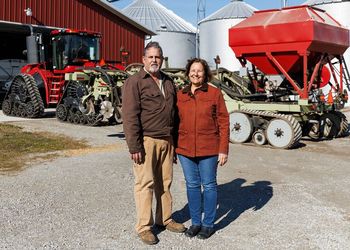Expand the Business

Expand the Business
Entrepreneurs must be thinking about what's next for their venture.
October 1, 2017Once a business is established, it's time to build on success: new products, new markets, new opportunities. Entrepreneurs must continue to think innovatively to develop new partnerships. Now is no time for stopping. An entrepreneur will always look for new ways to solve the world's problems in unexpected ways.
Here are some stories on how to expand:
 Making the Most of Ideas and Inventions
Making the Most of Ideas and Inventions
Rich Chylla is the executive director of MSU Technologies, which facilitates the commerical development and public use of technologies and copyrightable materials developed by MSU faculty and staff.
Your organization manages all the inventions and discoveries for the university. Why is this so important?
I consider this to be the heart of a research university’s mission: to create new knowledge and then to transfer that knowledge to benefit the public—both within the state of Michigan and beyond it. One way we do that is by taking inventions and discoveries and transferring them to companies for the benefit of society.
What does that look like?
Whenever a faculty member develops a new invention or has a discovery, we review it and may file for patent protection. We market the technology directly to industry, so they can license it and commercialize it.
What’s a success story that’s come from this process?
Years ago, an MSU-developed a technology that made it possible to use a smaller amount of pesticides and herbicides while still retaining their effectiveness. It was patented and then licensed to a Land O’Lakes subsidiary, Winfield Solutions. It’s been commercialized for more than 15 years, and has been used a lot in the Southeast.
How many ideas do you get? Are they all good?
As you might expect, almost everyone who discloses something to us thinks it will change the world. We get between 175 and 200 inventions disclosed to our office every year. About 75 percent ultimately have commercial potential, but because these technologies are so often at their earliest stages, that process can take from one to 15 years.
Who usually licenses these products? Fortune 500 companies?
We typically work with small- and medium-sized companies. Large companies often have their own research and development engines inside their companies. Small- and medium-sized companies rely a lot on innovation outside their companies to fuel their growth. Tech transfer offices like ours are very important mechanisms for these smaller companies to grow, because they don’t have the resources to develop certain technologies on their own.
Do the inventors become millionaires? Does MSU get those revenues?
We have a patent policy that anyone can see that shows how licensing revenues get split. Some revenues go to the inventor, some go to the academic unit and some go to the university. While the university does make some money in licensing royalties, it’s not really about that; it’s about the impact we can make. Our focus is finding companies who will make the investment in these technologies to make products that have a chance to be useful for the public.

Land Grand Goods: Roots Run Deep
Meet Land Grand Goods, the first-ever on-campus, student-run business born from the motivation of three students: College of Agriculture and Natural Resources junior Alex Marx, College of Engineering senior Abdullah Mohammed, and College of Education senior Bethany Kogult—self-professed activists and entrepreneurs. Established through the Residential Initiative on the Study of the Environment (RISE), and with boosts from the Eli Broad College of Business and the Burgess Institute for Entrepreneurship and Innovation, Land Grand Goods began selling honey, jam and herbal teas. The products are sold and served at the Kellogg Center, with a plan to expand to other areas of campus, like the recently-completed residence community 1855 Place.
“The three founders represent the future of entrepreneurship at MSU, and they are constantly looking at the triple bottom line—environmental sustainability, social responsibility, and economic vitality,” said Laurie Thorp, director of RISE. “At a land-grant institution, our history is tied to the land, it’s the 2017 version.”
Alumna Promotes Diversity in University Faculty with Detroit-Based Startup
 Kerry Ann Rockquemore knows how it feels to be an under-represented member of a big university’s faculty. During her six-and-a-half years as a tenured professor of Sociology at the University of Illinois-Chicago campus, she struggled to get the kinds of mentoring that she needed. She parlayed her academic experiences and insight into a nationally respected mentoring organization.
Kerry Ann Rockquemore knows how it feels to be an under-represented member of a big university’s faculty. During her six-and-a-half years as a tenured professor of Sociology at the University of Illinois-Chicago campus, she struggled to get the kinds of mentoring that she needed. She parlayed her academic experiences and insight into a nationally respected mentoring organization.
In 2010, Rockquemore made a life-changing choice. She transitioned from professor to entrepreneur. She became founding CEO of her own company, the National Center for Faculty Development & Diversity. Based in the Detroit area, it’s an independent professional development, training, and mentoring organization for diverse faculty members, postdocs, and graduate students around the U.S.
Seven years in, it counts scores of the most impressive universities and colleges as members. Their faculty participate in the center’s bootcamps, campus workshops, and online training.
It has its roots at MSU, Rockequemore said.
“I had the opportunity to work for Geneva Smitherman,” an MSU University Distinguished Professor Emerita who was instrumental in helping to create the university’s African Studies Center, Rockquemore said. “She was the first African-American female professor I’d met at MSU and she was a phenomenal mentor”.
It was a pivotal experience that kindled her confidence and desire to pursue a career in higher education.
She hasn’t forgotten it. Rockquemore is paying it forward as an active supporter and mentor to members of Women in Entrepreneurship (WE), a registered student organization run by female undergraduates. In fact, she gave the initial start-up capital to make it happen at Michigan State. Despite women’s advances in other fields, they’re still in the minority within the entrepreneurial landscape.
WE works to remedy that. It hosts speakers, panel discussions, small group talks, and networking opportunities for Spartan women to increase their professional capacity and develop a support system. In addition, it fosters cross-disciplinary perspectives that enhance education and collaboration.
“There’s a bit of magic that happens when energetic, empowered female students get the resources they need while working together,” Rockquemore said.
“My hope is that it will grow into a magnet…even if all the women don’t become entrepreneurs, they become entrepreneurially minded. Who doesn’t want a person who isn’t afraid to fail, is willing to experiment with solutions, can evaluate and move forward and bring others into the process,” she said.
“I love that any student, in any major, in any college can get involved in the culture of entrepreneurship. MSU’s approach is unique,” Rockquemore said.
 Bringing Ideas to the Market
Bringing Ideas to the Market
MSU Product Center helps the entrepreneurial world go round
Ever enjoyed a quiche at Grand Traverse Pie Company? Or maybe tasted a nutritious Gluten Free Bar? How about purchasing Michigan-made products at Meijer?
There is one common thread among each of these things: the MSU Product Center.
Housed within AgBioResearch and MSU Extension, the Product Center offers aspiring entrepreneurs help navigating the maze of food-related regulations, like product labeling and nutrition information.
“We assist with regional and national distribution, as well as other advanced services,” said Brenda Reau, director of the Product Center. “The number of clients who have received these advanced services total about 370.”
Who are these 370 people?
One is co-owner of the Gluten Free Bar company, Marshall Rader, a 2001 graduate of the College of Business. When he and three partners launched their business in 2010, their high hopes were met by MSU’s vast resources—now they have a facility in Grand Rapids and products in 9,000 stores nationwide.
Their goal? To create a brand for fun and gluten-free foods.
“We want to make something people can look forward to eating and they feel good when they eat it,” Rader said. “The Product Center shepherded us, and the biggest impact on our business was their ability to connect us to the right places.”
The resilience of an entrepreneur is clear to see in those like Rader, who have worked with the Product Center at MSU, and have diligently pursued their ideas—which Reau says is a key ingredient for success.









